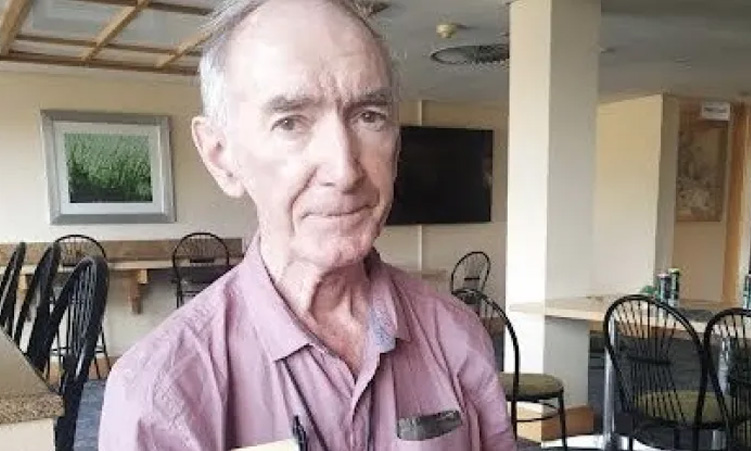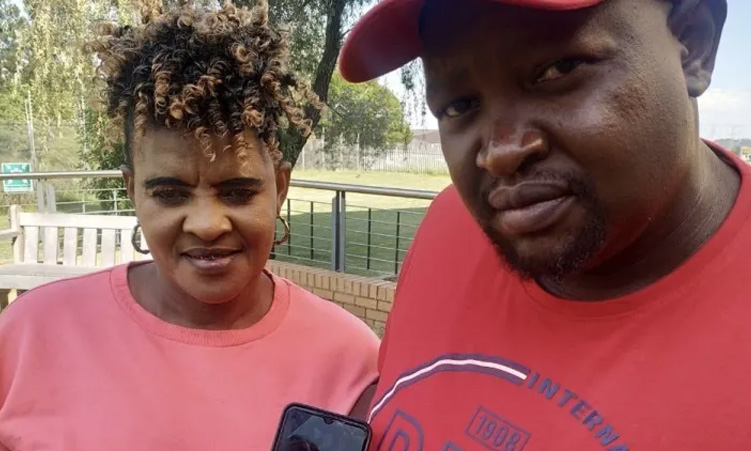Vincent Ntsolo is four years into an eight-year sentence in a Hong Kong jail.
He was just 18 years old when he was caught by customs officials trying to smuggle 1.9kg of cocaine through Hong Kong to China. He is one of many South Africans recruited as drug mules.
“By God’s grace, he didn’t get to [mainland] China. It was fortunate that he was arrested in Hong Kong. They didn’t tell him that China has the death penalty,” says Australian Catholic priest John Wotherspoon, who has made it his mission to help people caught smuggling drugs.
On the streets of Dobsonville in Soweto, the woman accused of recruiting Ntsolo walks free. His family sees her all the time and she does her best to avoid them.
“She is living her life as if nothing happened,” says Lerato Ntsolo, Vincent’s sister.
“The problem is that they have a direct link to our community. They are one of us.
“I have always wanted to know what they said to him, to get him to go. Maybe it was money talk.”
In a hotel in the south of Johannesburg, the families of drug mules who are serving sentences in Hong Kong jails gathered recently to meet with Wotherspoon, founder of Voices for Prisoners, an organisation set up to support people in prison for drug trafficking.
The families have limited contact with their loved ones. They can’t afford trips to Hong Kong. They get one phone call a month.
So anything Wotherspoon and his team can tell them is welcome. Many of the inmates hold back on what is happening. They don’t want to worry their families back in South Africa. But they do open up to the priest and the members of Voices for Prisoners.
When Voices for Prisoners chief operations officer Jane Chow tells Sam and Zanele Betha that their niece, Fezeka, has been given a nickname by her guards, their faces light up and they smile. Fezeka is awaiting trial, accused of trying to smuggle 980 grams of cocaine hidden in perfume bottles.
“The prison guards call her the black pearl,” says Chow. “She is doing well, she is a real sweetie and bubbly and she has found friends.”
The couple, who raised Fezeka, spoke to her for the first time in December, two months after she was detained. She cried through the whole call, they said.
“When we spoke to her in December, she said she regretted everything she had done,” says Sam. Fezeka has a seven-year-old boy.
Wotherspoon keeps a small notebook with scribbled information given to him by prisoners he interviews. In the book are names that keep recurring — the names and nicknames of drug dealers and recruiters responsible for dispatching the mules on their trips abroad.
The notebook also traces developing trends in the drug trade. Wotherspoon has noticed more recruits coming from Zimbabwe.
He has also noticed that drugs are increasingly smuggled in condoms or plastic pellets, which the drug mules swallow.
And the recruiters are increasingly targeting older mules.
Tough economic conditions mean that drug dealers have no shortage of willing recruits.
Drug mules are inexpensive for dealers, explains Simon Howell from the Centre of Criminology at the University of Cape Town.
“They are cheap, and in a place like Malaysia, where it is difficult to get shipments in, mules are useful. If they are caught, it is not a huge loss for the drug dealer.”

Wotherspoon, who is a prison chaplain in Hong Kong, uses his leave to travel to meet families of prisoners. This was his fourth visit to Johannesburg.
He also contacts law enforcement in the countries he visits, passing on information he has collected in his notebook. But getting the police to act can be frustrating, he says.
His work with the families began in 2013, when he noticed an increase in the number of foreigners ending up in Hong Kong jails.
“There were 30 men from Tanzania alone,” recalls the priest.
He got one of the men to write a letter home warning others about the dangers of trafficking drugs. Wotherspoon didn’t realise the impact that letter was going to have.
“It was like a bomb going off. I didn’t know but he named seven or eight people involved, including politicians. The media got hold of it and, credit to the government, they tightened security at the airports.”
After that, the number of Tanzanians in Hong Kong jails dropped.
Yet 11 years later, African drug mules are still ending up in Hong Kong jails.
In George in the Western Cape, Locked Up SA advocacy group director Patricia Gerber assists the families of South Africans who are in jail abroad. She says South Africans incarcerated in Hong Kong are “lucky”. In Hong Kong prisoners are treated well. They can study, have access to good medical care and even earn money.
Prisons in other places, such as Kenya and Brazil, are overcrowded and families have to send prisoners money to survive. Once the prisoners have finished their sentences, they have to pay their airfare home. Many are left stranded in foreign cities without their passports and unable to work, says Gerber.
Lerato Ntsolo says her brother is doing well in prison. He has told her he is learning Cantonese, the language spoken in Hong Kong and is picking it up quickly.
But Lerato is worried about another young man from her neighbourhood. He left the country and when he came back he had money which he spent on parties and a new cellphone. Then he went on a second trip, to São Paulo in Brazil and this time he didn’t return.
“The sad thing is that he doesn’t have family. There was his grandmother and she has passed away. I think if he tries to reach out from there, he can’t,” says Lerato.
“The problem is that unemployment is huge in our community and that is where it begins.” – GroundUp
Stay informed with The Namibian – your source for credible journalism. Get in-depth reporting and opinions for
only N$85 a month. Invest in journalism, invest in democracy –
Subscribe Now!






